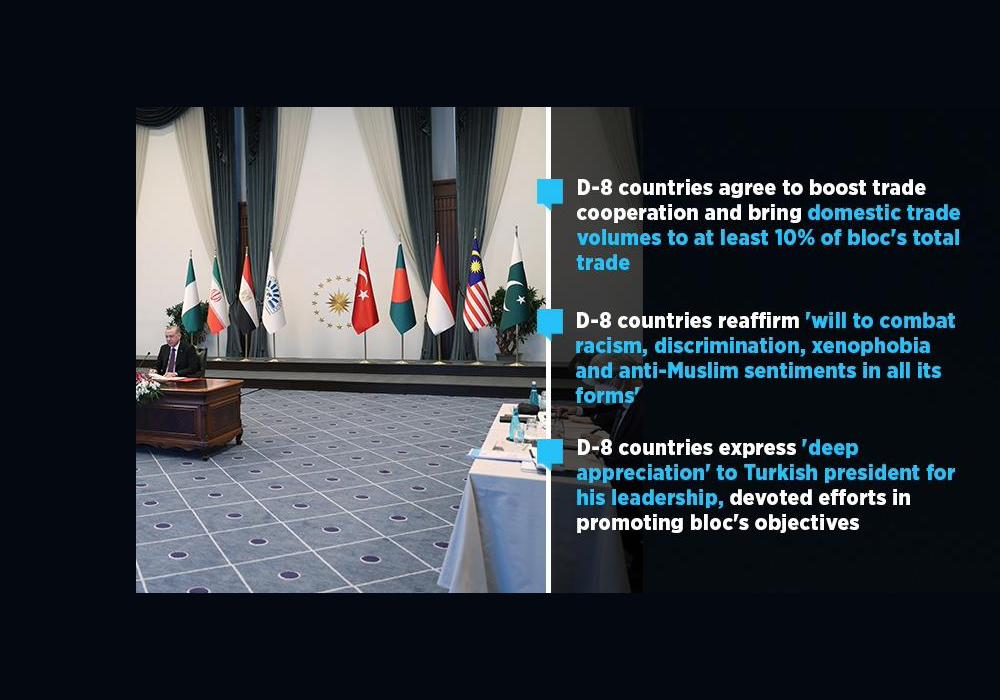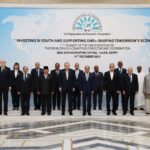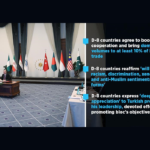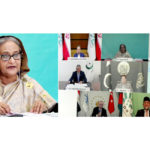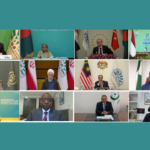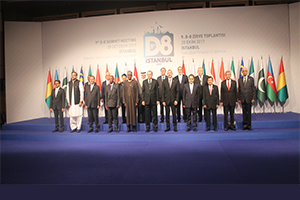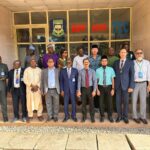Developing-8 countries eye to become stronger with 10-year roadmap adopted Thursday
Developing-8 countries agreed Thursday to enhance trade cooperation and bring their domestic trade volumes to at least 10% of the organization’s total trade in the next ten years.
During the 10th Summit of Developing-8 (D-8) Organization hosted by Bangladesh and also attended by Turkish President Recep Tayyip Erdogan, the bloc adopted the D-8 Decennial Roadmap for 2020-2030 and the Dhaka Declaration 2021.
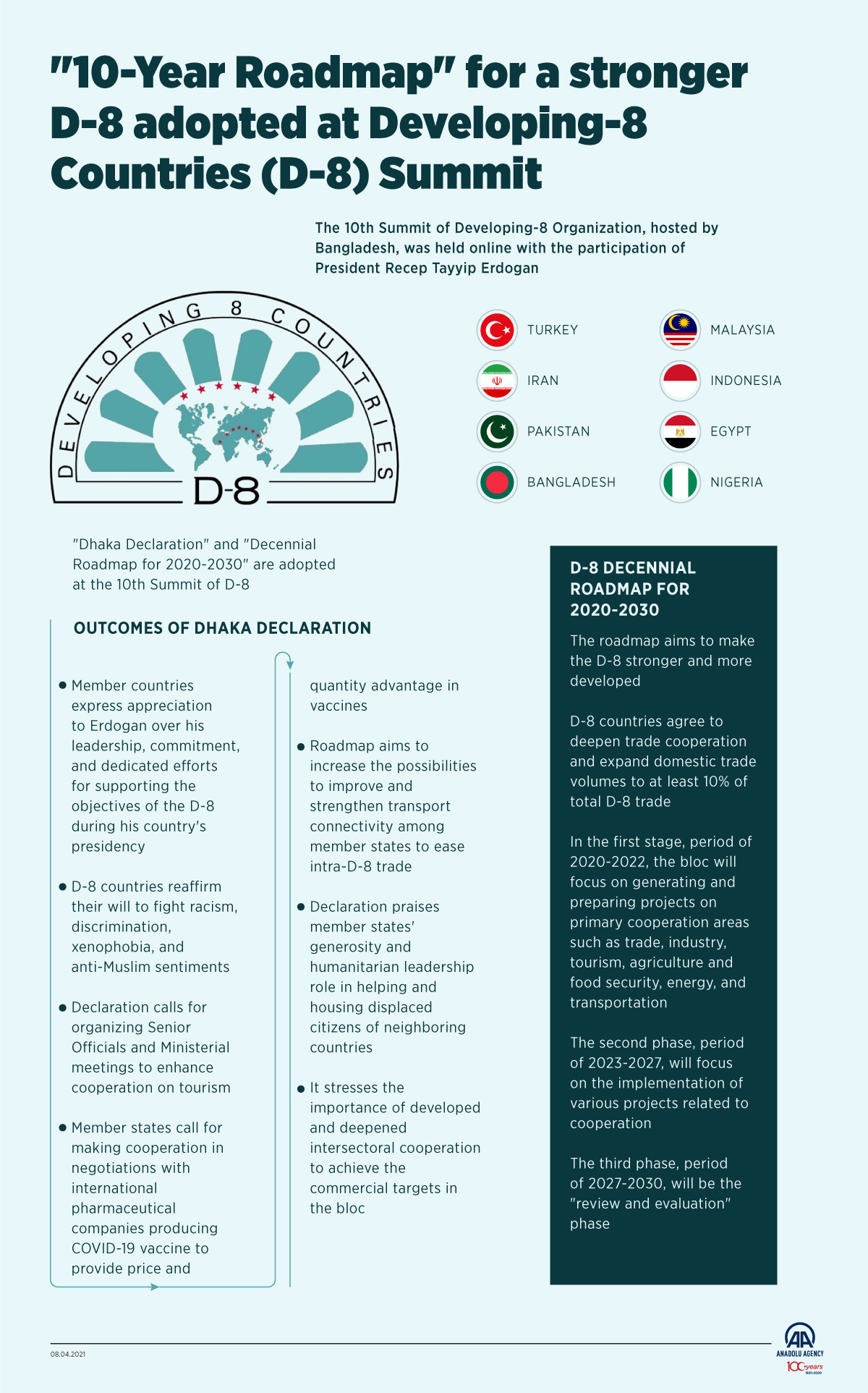
With the roadmap, the bloc aims to become stronger and more developed and support the implementation of relevant strategies and action programs to help achieve the 2030 sustainability agenda set by the UN.
It also aims to design concrete project plans for each area of cooperation for achieving sectoral goals.
The roadmap includes cooperation in the areas of trade, agriculture and food security, industrial cooperation and SMEs (small-and-medium-sized enterprises), energy, transport and connectivity, tourism, and health.
The document is intended to help review, update, and build a structure based on existing mechanisms, considering the changing nature of the international economic climate.
In the first stage, including a two-year period, the bloc will focus on generating and preparing projects on primary cooperation areas such as trade, industry, tourism, agriculture and food security, energy, and transportation.
In the second stage of the 2023-2027 period, the trade cooperation will be enhanced and the focus will be on the execution of various projects in the six priority areas of cooperation.
The third and last stage, covering the years 2028-2030, will be a period of reviews and evaluations. The member countries aim to reach at least 10% of the total D-8 trade in their domestic trade volumes.
Dhaka Declaration
In the declaration, the member countries reiterated commitments made in earlier summits “to peace, democracy, progress, dialogue, solidarity, partnership as well as tolerance and moderation as the core values and foundation for achieving economic prosperity and well-being of our peoples.”
They reaffirmed “strong faith” in multilateralism, particularly the UN system, and committed to active participation, effective coordination and cooperation with all relevant regional and international organizations to maximize the realization of common interests.
The countries also highlighted the potential and benefits of South-South cooperation that contribute to their development.
The declaration emphasized the importance of enhancing cooperation in fighting the COVID-19 pandemic.
“Desiring to pursue the objective of sustainable socio-economic development and recognizing the importance of mutual cooperation in six priority areas of cooperation: Trade, Agriculture and Food Security, Industrial cooperation and SMEs, Energy and Minerals, Transportation and Tourism,” it said.
Climate change is one of the greatest challenges of the time, the countries stressed, saying mitigation of and adaptation to climate change “represent an immediate and urgent global priority.”
They affirmed the importance of enhanced and deepened cross-sectoral cooperation for a more intensive private sector engagement in all activities to achieve intra-bloc trade goals.
Noting a desire to pursue the objective of sustainable socio-economic development, the countries recognized the significance of mutual cooperation in trade, industry, intellectual property rights, agriculture and food security, forestry, transportation, tourism, health and social protection, climate change, and environmental sustainability.
Will to combat xenophobia, anti-Muslim sentiments
The declaration highlighted the benefits of making use of the immense potential of the blue economy, which could further broaden and diversify the trade basket internationally.
“Expressing our resolution to fight against all threats to economic development as well as peace and prosperity of the Member States, including terrorism in all its forms and manifestations, sectarianism and extremism, amongst others,” it said.
The countries also reaffirmed their will to fight racism, discrimination, xenophobia, and anti-Muslim sentiments in all forms.
Appreciating Turkey’s efforts during the term presidency since 2017, the declaration recalled initiatives of the country, including the establishment of the D-8 International University, D-8 Research Center for Agriculture and Food Security, and initiation of the D-8 Heath and Social Protection Program.
Among the project proposals of Turkey were the initiation of the D-8 Barter Trading System and the establishment of the D-8 Creative Economy and Financial Center.
It also welcomed cooperation with many national and international organizations such as the UN and Islamic Development Bank.
It said a project support fund will be established within the bloc for pre-feasibility studies of project proposals.
Recalling a D-8 meeting among tourism ministers in 2019, it called on “to conduct Senior Officials and Ministerial meetings on tourism cooperation at regular intervals for review of the work and implementation of the goals and targets as well as timelines agreed upon.”
Also welcoming the adoption of the statute of the D-8 Chamber of Commerce and Industry, it supported the idea of the establishment of a digital platform for the chamber to promote trade and business among the D-8 members and the rest of the world.
The declaration highlighted the importance of close cooperation among the member states in the area of technological developments.
They reiterated the call on member states to provide material and human resources for effective program implementation.
Equitable access to COVID-19 vaccine
“Call upon the Member States to cooperate in negotiations with the international pharmaceutical companies manufacturing COVID-19 vaccines, which will give advantage in quantities and prices for all the D-8 Member States,” the declaration said.
Applauding Indonesian Foreign Minister Retno Marsudi’s role as the co-chair of the COVAX facility, which is meant to ensure equitable global access to vaccines, it noted: “As no single economy can fully recover until we have global equitable access, ensuring equal global COVID-19 vaccination will contribute significantly to accelerate the global economic recovery.”
It also appreciated the Pakistani government’s debt relief initiative amid the COVID-19 pandemic.
“Encourage Member States to ratify and operationalize the Preferential Trade, the Visa and the Customs Agreements as soon as possible in order to promote and ensure substantial cooperation among the Member States in this vital sectoral track of cooperation,” the declaration read.
Welcoming ratification of the D-8 Charter by Malaysia in September 2019, it praised “the generosity and humanitarian leadership role” played by D-8 member states in accommodating displaced people of neighboring countries, providing them with all means of support despite the conditions of the pandemic.
The declaration also expressed “deep appreciation” to Turkish President Erdogan for his leadership, commitment, and devoted efforts in promoting the organization’s objectives during his chairmanship.
It also expressed appreciation to Bangladesh for hosting the 10th summit of the bloc, and welcomed Egypt’s proposal to host the next summit, with its date to be discussed later.
The establishment of the Developing-8 bloc was officially announced on June 15, 1997, at the Istanbul Declaration of the Summit of Heads of State and Government.
The bloc includes Bangladesh, Egypt, Nigeria, Indonesia, Iran, Malaysia, Pakistan, and Turkey.
Source: Anadolu Agency










